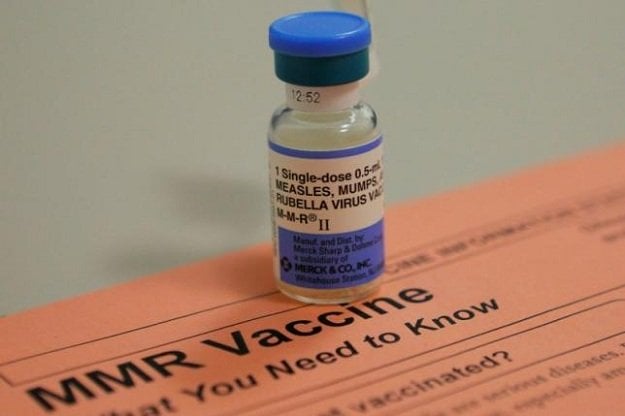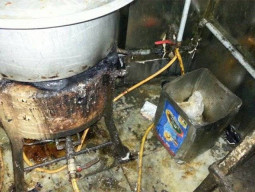
"Measles is a highly contagious viral disease. Symptoms include fever, cough and rashes all over the body," he said. Dr Baloch added that EPI initiated a measles vaccination drive across the province between October 15 and 27, 2018, during which 7.3m children were vaccinated. He shared that all 29 districts and 1,123 union councils across Sindh were covered in the drive.
Parents resist polio immunisation teams in Hyderabad
Dr Baloch maintained that around 11,760 social mobilisers took part in the campaign to create awareness among the general public.
A few days ago, an exclusive session on "Handbook on Immunisation" was organised at the Sindh EPI office in Karachi. The session was organised for civil society organisations (CSOs) to get an idea about EPI policies and related documents to build their capacity to work on immunisation. He said that it was important to be aware and updated on current EPI policies and related documents.
The session was one of a series of orientation sessions, planned for all four provinces organised by Civil Society Human and Institutional Development Programme with support from Gavi, the Vaccine Alliance.
Dr Baloch said that the Sindh EPI was keen to engage CSOs to support them in increasing equitable immunisation coverage in the province by addressing missed children, particularly in urban slums and hard-to-reach areas. He added that CSOs must come forward and support the Immunisation Programme in reaching the missed children in rural Sindh and urban slums of Karachi where there are limited government facilities. "However, we want CSOs' support to be sustained and measurable."
Dr Baloch said that Sindh EPI, along with its partners, will continue the momentum to raise immunisation coverage rates.
Huma Khawar, lead trainer supporting the Immunisation Programme, highlighted the importance of CSOs to work closely with the government. All these years, most of the efforts in the government have been focused on strengthening the supply with limited investment in community engagement and demand creation, according to her. "We need to find out and understand who is being missed and why," said Khawar.
Khawar added that there was a need to engage CSOs with underprivileged communities and to address vaccine hesitancy. "To ensure that no child dies due to vaccine preventable diseases, each key player must fulfil their mandate. This includes the government, technical partners, civil society and parents," she added.
"It's a low-hanging fruit. CSOs have a great comparative advantage of reaching the unreachable. Precedence has been set during the last measles campaign during which CSOs worked hand in hand with the government in achieving the above 90% campaign target. If we can achieve this during a campaign, we can achieve it during routine operations as well," added Khawar.
Sundas Warsi, working for Civil Society Human and Institutional Development Programme said the Handbook on Immunisation was compiled after a detailed review of all policies and documents related to immunisation and it will be available online.
World Health Organisation (WHO) Technical Officer Dr Faizanul Haque conducted a session on 10 vaccine preventable diseases for which vaccinations were available with EPI free-of-charge. He also explained the importance of micro-planning.
WHO Effective Vaccine Management Coordinator (Sindh) Fahad Fehmi talked about effective vaccine management and explained the cold chain system of the immunisation programme.

















COMMENTS
Comments are moderated and generally will be posted if they are on-topic and not abusive.
For more information, please see our Comments FAQ